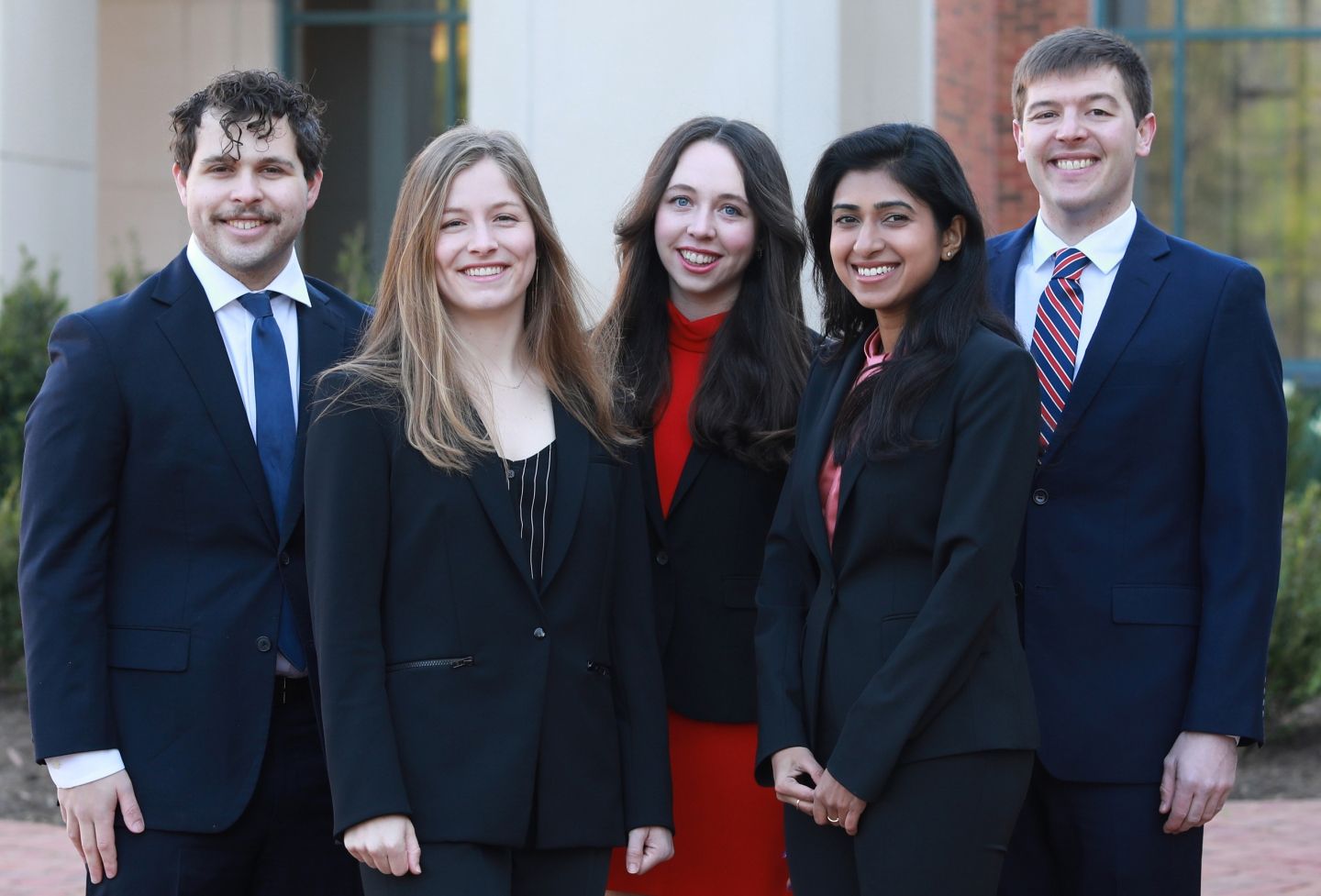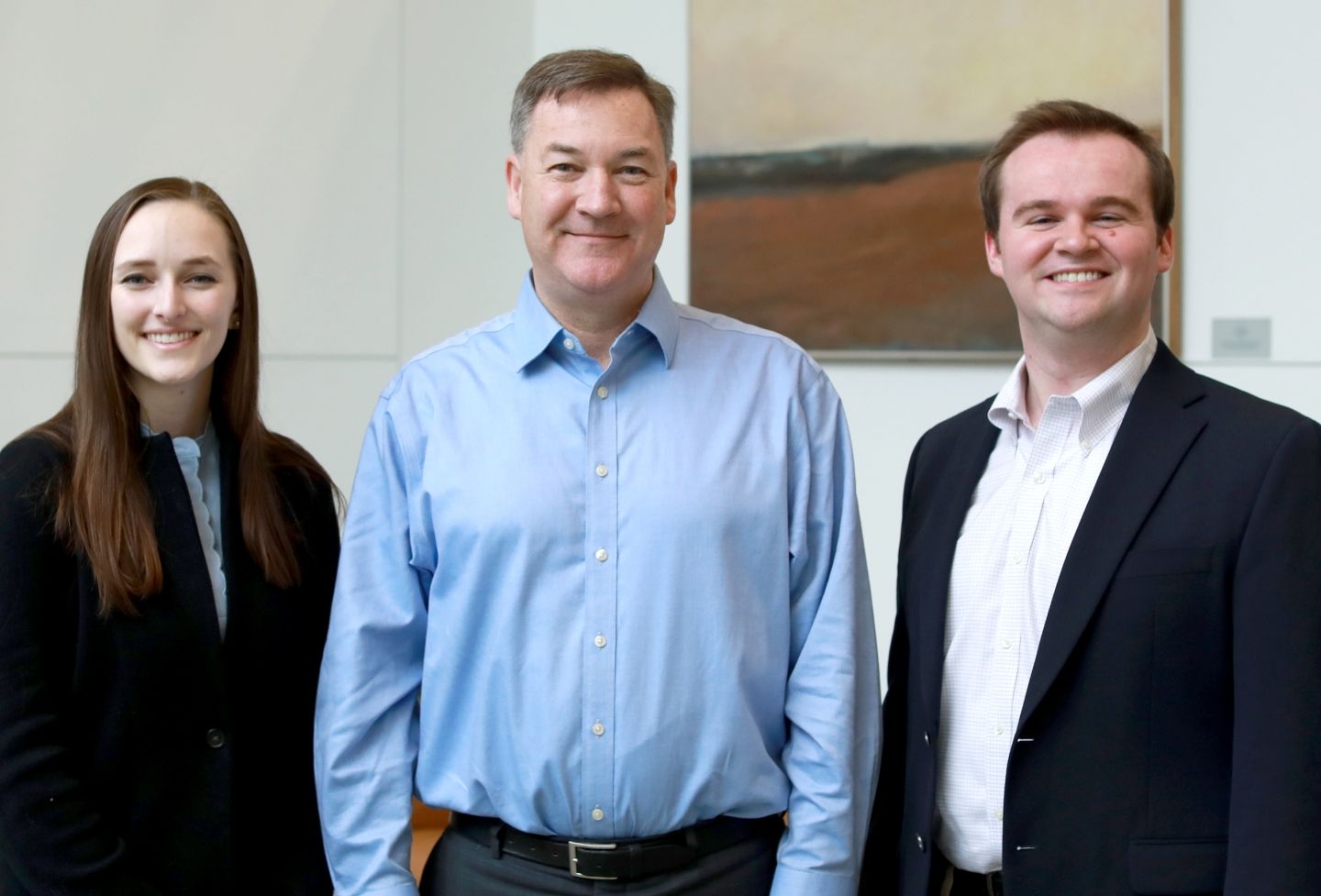Championing the protection of wetlands on behalf of the Sierra Club was among the significant work the Environmental and Regulatory Law Clinic at the University of Virginia School of Law performed this year in cases around the state.
With the help of students who researched and prepared the case, Professor Cale Jaffe ’01, the clinic’s director, argued at a hearing May 3 in Richmond Circuit Court that the design for a residential and commercial development in Poquoson, Virginia, failed to avoid the destruction of wetlands to the “maximum extent practicable” as required by federal and state law.
He said state regulators disregarded the requisite process for evaluating alternative designs that would preserve significant wetlands on the site.
“The process is important because it ensures that concerns from citizens and local community groups are meaningfully evaluated before a permit is issued,” Jaffe said.
Poquoson sits on the edge of the Chesapeake Bay. Larger, wholly intact areas of wetlands are especially important in this region of the state for wildlife habitat preservation, flood mitigation, and maintenance of clean, healthy water.
This is the first time the clinic has represented the Virginia Chapter of the Sierra Club, one of the oldest and most well-known environmental groups in the country. Other clinic clients this year have included the Mattaponi Indian Tribe, Appalachian Voices (a regional environmental nonprofit), and the Virginia Energy Efficiency Council (a nonprofit that supports cost-effective energy efficiency programs).
With the Poquoson case, clinic students explored the intricacies of how state water control law works with federal guidelines under the Clean Water Act. Students drafted briefs for the Sierra Club under the supervision of Jaffe, who previously served as an attorney with the Southern Environmental Law Center and director of its Virginia office.
Brian Lohnes LL.M. ’18, a U.S. Army major with 15 years of service, was one of two lead students on the case. Lohnes said the legal challenge appealed to him because of how clear-cut the dispute appeared and how the work gave him experience in civil litigation.
Jared Forbus ’18 laid the groundwork for the Sierra Club’s claims with legal research and brief writing, which was carried out during fall semester. An outcome in the case is expected soon.
Upon graduation, Lohnes will be assigned to The Judge Advocate General’s Legal Center and School. He will work in The Judge Advocate General’s Strategic Initiatives Group and teach environmental law.
“I will eventually defend civil cases for the Army, so this case presented a wonderful experience to cut my teeth,” Lohnes said. “Going into this case, my knowledge of the Clean Water Act was purely academic. Working on this case exposed me to the real-world use of the act, which will be very helpful in my practice with the Army.”
Here’s a look into other work the clinic took on during the 2017-18 academic year:
- The clinic drafted comments to the Environmental Protection Agency on behalf of the National Trust for Historic Preservation in the United States, opposing repeal of EPA’s greenhouse gas pollution rule for existing power plants. Halima Nguyen ’18 was the primary student author, and Krista Hekking ’18 and Nick Garifo ’18 also contributed.
- In both semesters, students worked at the Southern Environmental Law Center on legal challenges to the Atlantic Coast Pipeline, a proposed natural gas project. Garifo and Courtney Koelbel ’19 were the primary students who worked on an appeal that the SELC filed on behalf of Appalachian Voices and other organizations in the U.S. Court of Appeals for the Fourth Circuit.
- Kirsten Brown ’19 worked with attorneys at the SELC in fall semester on legal remedies for water pollution linked to coal ash lagoons adjacent to power plants.
- The clinic filed an amicus brief on behalf of Virginia’s Mattaponi Indian Tribe in a federal lawsuit challenging a proposal from Dominion Energy to build a major electric transmission line over the James River. Nguyen was the primary student author.
- The clinic intervened in two proceedings before the Virginia State Corporation Commission on behalf of the Virginia Energy Efficiency Council. The clinic argued for expansion of a program to reduce electricity bills for low-income and elderly residents, and supported other utility-sponsored efficiency initiatives.
Founded in 1819, the University of Virginia School of Law is the second-oldest continuously operating law school in the nation. Consistently ranked among the top law schools, Virginia is a world-renowned training ground for distinguished lawyers and public servants, instilling in them a commitment to leadership, integrity and community service.


